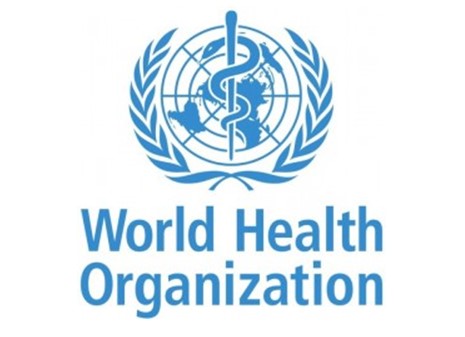Ahead of the UN Climate Change Conference (COP-28), WHO has published its “2023 review of health in nationally determined contributions and long-term strategies” highlighting the actions needed to ensure that people’s health is fully prioritised and integrated into national plans to fight climate change.
Climate change is already harming human health and wellbeing. From illness caused by extreme climate events to the increased incidence and spread of vector-borne diseases; and the rise in cardiovascular and respiratory diseases caused by extreme heat and air pollution respectively - the impacts of climate on human health are inescapable.
“The health of humans and our planet are inextricably linked, and after years of promises rapid action is needed urgently to protect both,” said Dr Tedros Adhanom Ghebreyesus, WHO Director-General. “Only climate policies driven by health outcomes will result in the action needed to save lives, prevent disease, and build healthier, fairer societies”.
Mainstreaming health in national climate strategies
Significant progress has been made in the integration of health into nationally determined contributions (NDCs) and long-term low emissions and development strategies (LT-LEDS), the main policy instruments to reduce emissions and build climate resilience as set out by the Paris Agreement.
91% of the available NDCs now include health considerations, compared to 70% of those reporting in 2019. Compared to previous rounds of national climate plans, health-inclusive and health-promoting climate targets and policies are increasingly being developed for mitigation, adaptation, means of implementation, Loss and Damage, and long-term sustainable development strategies.
“Countries have made significant progress in recognising climate change’s threat to human and planetary health in their national plans to tackle climate change, but we need to see these commitments scaled up, accelerated, and adequately funded to ensure an equitable response that protects the health and livelihoods of current and future generations,” said Dr Maria Neira, WHO Director of Department of Environment, Climate Change and Health.
Urgent action needed to prevent air pollution deaths
Despite this progress, there remain huge gaps in the action being taken. Ambitious action on air pollution will save lives, yet only 16% of NDCs include standalone targets, measures or policies to reduce air pollution.
Air pollution is one of the greatest environmental risks to health. Ambient (outdoor) and household air pollution together cause around seven million premature deaths each year from ischemic heart disease, stroke, lung cancer and respiratory diseases like asthma and pneumonia, which disproportionately affects children in low- and middle-income countries.
By scaling up action to cut carbon emissions, countries will also see wider health benefits. For example, encouraging walking and cycling and supporting shifts to sustainable and healthy diets improves health while reducing impacts on the climate.
Additionally, countries can be expected to reap health benefits which outweigh the financial investments necessary to mitigate climate change. For example, the LT-LEDS of the United States of America estimates that the air quality improvements that would come from implementing climate change mitigation measures could prevent up to 300 000 deaths and avoid USD$150-250 billion in health and climate damages by 2030. Similarly, the LT-LEDS of other countries including Fiji, Morocco and Spain, acknowledge that reaching climate change mitigation goals will bring economic savings from air pollution reduction.
Health-specific climate action is underfunded
Sustainable climate finance is essential for health adaptation, mitigation, and climate-resilient development, but health remains chronically underfunded in national plans to tackle climate change.
The ability for countries to engage in climate change adaptation and mitigation actions is highly dependent on their financial capacity, and too often the countries that are most vulnerable to the impacts of the climate crisis are those without the resources to fund climate action.
Most countries depend on international financial support for climate action. Only one in ten NDCs include domestic funding for some or all of their health actions and only one in five long-term strategies include specific health funding provisions such as taxes, levies and carbon pricing mechanisms.
Despite this reliance on multilateral climate financing, only 2% of adaptation funding and 0.5% of overall climate funding is currently allocated to projects that explicitly aim to protect or improve human health.
To ensure an equitable and effective response to climate change, WHO is calling for multilateral climate financing mechanisms to allocate more funding to policies and initiatives that explicitly aim to protect or improve human health.
Health at COP-28
WHO continues to support countries to protect health by building climate resilient health systems, reducing carbon emissions from healthcare, and tracking global progress.
WHO is working with the COP28 Presidency to lead the first-ever day dedicated to health at COP on 3 December 2023 and the meeting of Health and Climate Ministers, underlining the urgent need to accelerate health-focused climate action at every level.
Distributed by APO Group on behalf of World Health Organization (WHO).
Latest Stories
-
Government could seek more IMF funding, incoming finance minister Ato Forson says
11 minutes -
Man told he can’t recover £598m of Bitcoin from tip
28 minutes -
Gun-wearing leader sparks concern at Mahama’s inauguration
39 minutes -
Boeing and Google give $1m each to Trump’s inauguration
51 minutes -
TikTok to make final plea at Supreme Court against US ban
56 minutes -
Supreme Court rejects Trump bid to halt hush-money case sentencing
1 hour -
Man with crocodile skull in luggage arrested at Delhi airport
1 hour -
Mozambique tense as opposition leader returns from exile
2 hours -
Ivory Coast president signals he would like to run for fourth term
5 hours -
Case of second preacher arrested over damaged vehicles at Parliament adjourned
5 hours -
Washing bay attendant fined for impersonating military officer, possessing gear
6 hours -
Loading boy arraigned over alleged theft of driving mirror
6 hours -
Disregard Young Apostles’ statement dissociating themselves from me – Anim Addo
6 hours -
Businessman in court for allegedly defrauding 18 rent seekers of GH¢100K
6 hours -
Islamic Foundation for Humanitarian Services completes 50-bed maternity block at Ejura Government Hospital
7 hours

